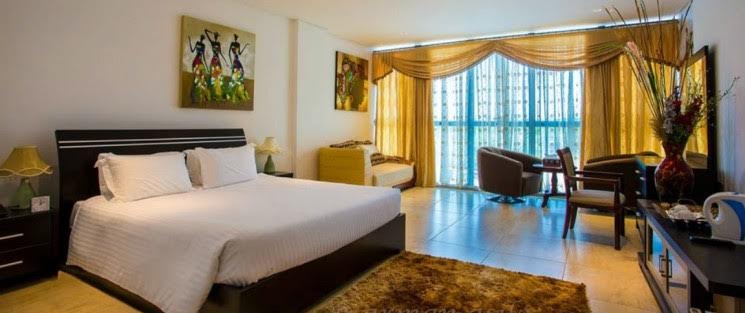Ghana Hotels Association decries heavy taxation and utility tariff hikes, cites looming crisis for hospitality industry
“We do not know how they arrived at those sharp increases, and as far as we remain stakeholders, we expected some consultations on operational modalities before implementation. This must certainly change for our mutual gain. The entire arrangement appears we are being punished for owning businesses because the rates do not reflect the reality of our business.”
- Advertisement -
The Ghana Hotels Association (GHA) has expressed its concerns regarding recent increases in utility tariffs, taxes, and levies, emphasizing that these additional financial burdens are severely impacting the hospitality industry. The sector had already been grappling with substantial losses resulting from the COVID-19 pandemic, and instead of receiving support to expedite recovery, it has been hit with substantial taxes, notably property rates, which have deepened its economic challenges.
Mr. Isaac Nkoom, the former Central Regional Chairman of the GHA, highlighted that the property rate system implemented by the Ghana Revenue Authority has become detrimental to the sector’s efforts to rebound. He questioned the significant increases in property rates, pointing out that businesses expected consultations on operational modalities before such drastic changes were put in place.
- Advertisement -
Mr. Nkoom stressed, “We do not know how they arrived at those sharp increases, and as far as we remain stakeholders, we expected some consultations on operational modalities before implementation. This must certainly change for our mutual gain. The entire arrangement appears we are being punished for owning businesses because the rates do not reflect the reality of our business.”
- Advertisement -
These concerns were raised during the Fourth National Executive Council Meeting of the GHA, held under the theme: “Sustaining the Hotel Industry in Ghana – Post-COVID-19 Pandemic.” The event brought together national and regional executives of the GHA, as well as various key stakeholders including metropolitan, municipal, and district assemblies, the Ghana Tourism Authority, Ghana National Fire Service, and the Food and Drugs Authority to discuss industry-related issues and potential solutions.
Mr. Nkoom also highlighted the adverse effects of the numerous taxes and levies, which he described as “suffocating the growth of the sector.” These include NHIL, VAT, GETfund, COVID-19 levy, GTA levy, EPA Levy, FDA levy, MMDAs levy, Fire Service levy, and a one percent tourism levy, among others.
- Advertisement -
In response to these challenges, he urged the government to consider reducing VAT charges, as the hotel business is struggling due to low patronage resulting from economic difficulties. Additionally, he called for a reduction in regulatory fees to mitigate the impact on job security and business sustainability.
Mr. Kwame Gyasi, the Central Regional Director of the Ghana Tourism Authority, advised hotel operators to prioritize customer service to help boost the country’s tourism industry. He emphasized the importance of training, recruitment, and coordination to enhance service delivery and customer satisfaction.
Despite the challenges faced by the hospitality sector, Mr. Gyasi assured industry members that the government is empathetic to their difficulties and is actively seeking solutions to support their recovery and growth.
- Advertisement -


